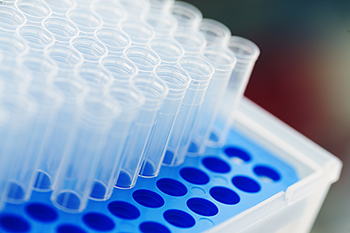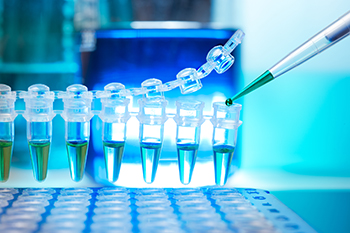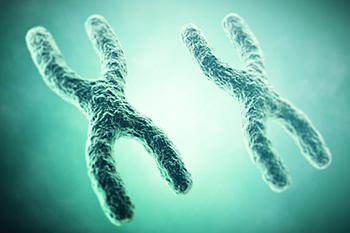How the Nordic EMBL Partnership is helping to fight COVID-19
Whilst each of the Nordic EMBL Partnership nodes have different but complementary research focuses, the ongoing COVID-19 pandemic has become a common theme for all four of our Nordic EMBL Partnership nodes.
The EMBL non-tenure model gives the Nordic EMBL Partnership the flexibility to adjust its research focus
The Nordic EMBL Partnership has, since its inauguration, followed the EMBL model for recruitment. Namely, non-tenure track recruitment that sees group leaders recruited for 5 + 4 years, with a mid-term review. This model enables the Nordic EMBL Partnership nodes to adjust their strategic research areas once a group rotates out. The model allows, for example, the node, or indeed its host university or country, the possibility to further develop a certain area of research or establish expertise in a completely new field. A lot more flexibility is therefore offered by the model, as opposed to more established institutions with permanent research groups.
Our affiliation with EMBL also means that we been able to recruit a high number of very talented young and international researchers who are well equipped to help contribute towards research into diseases and societal emergencies like COVID-19. These researchers are often at the very forefront of their field and very ambitious, and thus drawn to work on some of the most demanding research projects.
Thus, since the pandemic hit in early 2020, the four Nordic EMBL nodes have been able to start a large number of research projects to help better understand and tackle the novel coronavirus, SARS-CoV-2. The projects include, amongst others: research into the genetic determinants of SARS-CoV-2 susceptibility; the sequencing of the SARS-CoV-2 genome; drug screening to identify new therapies; effective antibody testing; the efficacy of treatments for the virus; and work to understand why SARS-CoV-2 can cause thrombosis in some patients.
A brief overview of the research taking place at each node is summarised below.



DANDRITE
- Jørgen Kjems (affiliated DANDRITE researcher)- Antiviral drugs in the fight against coronavirus - Research topic COVID-19
Professor Jørgen Kjems has been awarded a special Semper Ardens grant to design antivirals that can bind to coronaviruses and thus prevent viruses from being absorbed into the cells and causing damage. First, the researchers make a large library of drugs that can bind to coronavirus. They then continuously select the best binding RNA molecules and eventually end up with the strongest binding candidate suitable for use in a future treatment against the disease Covid19.
More details on the DANDRITE website.
- 5 mill DKK from the Lundbeck Foundation to test potential treatment of Covid-19 patients
Mads Fuglsang Kjølby, affiliated to Anders Nykjær's lab at DANDRITE/PROMEMO, and Ole Schmeltz Søgaard, will test the effect of Camostat Mesylate on SARS-CoV-2 infections in Covid-19 patients.
Associate professor and MD, PhD, Mads Fuglsang Kjølby from Department of Biomedicine, Aarhus University, and Department of Clinical Pharmacology, Aarhus University Hospital, and Associate professor and MD, PhD Ole Schmeltz Søgaard from Department of Clinical Medicine, Aarhus University, and Department of Infectious Diseases, Aarhus University Hospital, were interviewed about the upcoming clinical trial by TV2.
Mads' work has been published as a pre-print: 'Camostat mesylate inhibits SARS-CoV-2 activation by TMPRSS2-related proteases and its metabolite GBPA exerts antiviral activity', Hoffman et al.,
The work has also been covered on the following websites:
- Sciencemag.org: These drugs don't target the coronavirus, they target us.
- Lundbeck Foundation: Japanese heartburn drug to be tested on coronavirus patients.
More details on the Aarhus University website.
FIMM
- Project: The COVID-19 Host Genetics Initiative
The COVID-19 host genetics initiative brings together the human genetics community to generate, share, and analyze data to learn the genetic determinants of COVID-19 susceptibility, severity, and outcomes. Such discoveries could help to generate hypotheses for drug repurposing, identify individuals at unusually high or low risk, and contribute to global knowledge of the biology of SARS-CoV-2 infection and disease.
The initiative was launched by FIMM-EMBL Group Leader Andrea Ganna with the support of the Director of FIMM, Mark Daly. In a month, more than 130 studies and 600 researchers have already joined.
COVID-19 Host Genetics Initative project website.
- Project: Sequencing SARS-CoV-2 Virus genome
Researchers are planning to sequence the SARS-CoV-2 virus genome from nearly all positive COVID-19 samples from the Helsinki University Hospital (HUS) region.
The sequencing information will be published quickly in open source databases to share information with other researchers and expert organisations. The SARS-CoV-2 genome is currently being studied simultaneously in many countries, which enables mutations to be followed almost in real time.
Researchers from the Viral Zoonoses group, led by Professor Olli Vapalahti at the Department of Virology, University of Helsinki, are joining forces with the Institute for Molecular Medicine Finland (FIMM) and with the Institute of Biotechnology (BI).
This enables the sequencing of almost all available samples. Researchers are using high-throughput sequencing, and it takes about two to three days to prepare the sequences.
- CovidPROG
FIMM is also participating in a Finnish COVID-19 research project (COVIDprog) led by Professor Markus Perola / THL). COVIDprog studies the individual properties, such as genetics, other diseases and medication usage, that might explain the severity of COVID-19 infection symptoms. THL has started recruiting Finnish patients to this study in collaboration with the Finnish biobanks. FIMM Genotyping Unit will genotype the patient samples.
- GeneRisk follow-up
The population-based GeneRISK study cohort (n=7350) collected by FIMM and consented for recontacting will be asked to participate in a questionnaire-based study screening for COVID-19 symptoms. Later, some of the participants will be asked to provide samples for serological tests. The study aims to understand the role of HLA, common genetic variants and epidemiological factors in COVID-19 severity and susceptibility.
- Drug screening to identify new therapies against SARS-Cov-2
The focus of this project is to set up a national functional drug response profiling platform for SARS-CoV-2 for drug repurposing. Our first goal is to repurpose approved drugs to prevent and treat COVID-19 and to translate these findings into clinical trials in Finland. To this aim, we create a standardized drug testing platform, which will be available for national or international partners to carry out drug testing against SARS-CoV-2, with flexibility in the assay set-up (antibodies against viral receptors/interacting proteins, novel compounds or probes, addition of CRISPR/Cas9 or siRNAs etc.) and assay readouts (cell viability, high-content imaging e.g. of virus/viral replication/proteins in 2D and 3D cell cultures). Our ultimate goals are to create an open-access database of the results and to find novel antiviral therapies.
From FIMM, Päivi Tammela, Kallioniemi group, FIMM HTB Unit and FIMM HCA Unit are involved.
- SARS-Cov-2 RNA testing
While many SARS-COV-2 RNA tests already exist and are most commonly RT-PCR-based strategies, several challenges remain to be solved. The exact spatio-temporal secretion pattern of the virus at different points of infection is uncertain and raises questions about the best sample sources for testing. The goal of this project is to identify the best sampling procedures and the impact of viral load and mutations to help to design future RNA tests.
From FIMM, Maija Puhka, Pirkko Mattila, FIMM Hi-Prep Core and FIMM Single Cell Analytics Unit are involved.
- Antibody testing - IFA
Antibody tests with high specificity and sensitivity are urgently needed to measure the existing immunity against the SARS-CoV2, to follow how intended vaccines work, and to perform serodiagnostic surveys. To tackle these important aspects of current pandemic, we aim to establish a rapid and accurate high-capacity method to measure the general population immunity against SARS-CoV2. The assay is a next-generation version of the indirect immunofluorescence assay (IFA) commonly applied in viral serodiagnostics, since it enables automated detection of up to three immunoglobulin (Ig) classes from a single sample. This project is done in collaboration with the Department of Virology.
From FIMM, Peter Horvath, Vilja Pietiäinen, FIMM HTB Unit and FIMM HCA Unit are involved.
- Microarray-based SARS-Cov-2 test using MoMic
The aim of this study is to modify and combine a previously developed mobile digital microscopy scanner with a DNA-microarray-based detection of SARS-CoV-2 and to perform evaluation of feasibility and diagnostic accuracy of the method. DNA-microarray assays have previously been widely used in the detection of coronaviruses and allow for analysis of several viral targets in the same assay. However, readout of the microarray results has so far required expensive and bulky instruments, and our proposed combination of technologies decreases the cost per test by orders of magnitude, can be used at the point-of-care and in resource-limited settings.
- Inborn errors of immunity and HLA in COVID-19 susceptibility
This project focuses on looking for rare coding variants predisposing individuals to severe COVID-19 symptoms using exome and HLA sequencing approaches.
There are younger individuals with no pre-existing conditions that have extremely severe disease and even death as a result of the infection. We will perform exome sequencing on 50-100 such patients at FIMM and search for potential monogenic causes of their extreme response to infection, aligning to known databases of immune deficiency genes. Furthermore, we will comprehensively evaluate the role of MHC variation in disease risk and severity.
Investigators are Mark Daly, Hanna Ollila, Andrea Ganna and Mikko Seppänen (HUS).
Full overview of projects led by Helsinki University: https://www.helsinki.fi/en/researchgroups/covid-19/research
MIMS
At MIMS many scientists contribute to the research response to COVID-19. MIMS is part of a larger community of infection researchers at Umeå University who together rise to the challenges posed by SARS-CoV-2. The number of individuals admitted with COVID-19 to the university hospital has luckily remained small. The research focus is on gaining a deep understanding of the immune response during disease and to follow patients through recovery.
- Highly sensitive antibody assays
Clinical and basic researchers have joined forces with Mattias Forsell to develop a highly sensitive antibody assays which detects individuals who have in the past been infected. An evaluation of this assay has now been released as a preprint. The test is rolled out for clinically use and in research projects.
Other studies follow infected individuals over time, using genomics, metabolomic and immunological assays. There is a special emphasis on including also mild cases in such studies to understand mechanisms of protection from disease and to follow individuals through the recovery period, which can be long. Materials in local biobanks and rich patient records are proving valuable to complement these efforts.
Genotype data from studies in Umeå are contributed to the COVID-19 Host Genetics Initiative coordinated by FIMM which is beginning to reveal why only some individuals develop severe disease when infected.
- MIMS supports clinicians across Sweden to conduct basic research
All fellows are now heavily involved in delivering clinical care, but some also contribute to the COVID-19 research efforts. Current clinical fellowAnne-Marie Fors Conolly in Umeå brings her experience from hantavirus to bear on the question why SARS-CoV-2 can cause thrombosis. Piotr Nowak and a team at the Karolinska Institute showed that Tocilizumab can reduce time on mechanical ventilation and in hospital for patients with severe COVID-19.
Among the former fellows, Johan Normark and Alicia Edin conduct long-term studies on COVID-19 disease and recovery, and Anders Johansson leads the clinical response and coordinates a huge study in which the public health agency of Sweden works with the region Västerbotten and Umeå University to test 20.000 university staff and student to monitor infections at the start of the new term.
- A breakthrough publication from Anne-Marie Fors Connolly: Increased risk of acute myocardial infarction and stroke following COVID-19
A large nationwide study based on all COVID-19 patients in Sweden performed at Umeå University, concludes that the risk of acute myocardial infarction and stroke is three-fold increased the first two weeks following COVID-19. The study was published in The Lancet.
- COVID-19 is a complex disease that affects many organs, and we therefore aimed to determine if COVID-19 is an acute risk factor for acute myocardial infarction and stroke, says Anne-Marie Fors Connolly who is a MIMS Clinical Research Fellow, a principal investigator at the Dept. of Clinical Microbiology, and responsible for the study.
The study is based on 86 742 COVID-19 patients and 348 481 control individuals, and at the time of acceptance for publication in The Lancet, it was the biggest study of its kind to determine the association between acute myocardial infarction and stroke following COVID-19. In the study, the researchers compared the occurrence of myocardial infarction and stroke in COVID-19 patients with the control individuals during the study period 1st of February to 14th of September 2020. Using two powerful statistical methods, the risk of acute myocardial infarction and stroke was calculated following COVID disease onset.
- We found a three-fold increased risk of acute myocardial infarction and stroke in the first two weeks following COVID-19 using both statistical methods, and even after adjusting for known risk factors for acute myocardial infarction and stroke such as comorbidities, age, gender and socio-economic factors, says Osvaldo Fonseca Rodriguez, epidemiologist at the Dept. of Epidemiology and Global Health and Clinical Microbiology, and co-first author of the study with Ioannis Katsoularis.
Selected articles, media links and press releases:
- Rosendal E. et al. (2020): Detection of asymptomatic SARS-CoV-2 exposed individuals by a sensitive S-based ELISA. medRxiv, https://doi.org/10.1101/2020.06.02.20120477.
- Eimer J. et al. (2020): Tocilizumab shortens time on mechanical ventilation and length of hospital stay in patients with severe COVID‐19: a retrospective cohort study. Journal of Internal Medicine, https://doi.org/10.1111/joim.13162.
- Press Release from Umeå University: “Take the chance to get tested for COVID-19 on Campus Umeå”, https://www.umu.se/en/news/chance-to-get-tested-for-covid19-campus-umea_9514461/.
- Press release from MIMS: A breakthrough publication from Anne-Marie Fors Connolly: Increased risk of acute myocardian infarction and stroke following COVID-19: http://www.mims.umu.se/news-events/2039-new-publication-from-anne-marie-fors-connolly-increased-risk-of-acute-myocardial-infarction-and-stroke-following-covid-19.html
NCMM
- Inhibitor discovery targeting SARS-CoV-2
The group of Hartmut Luecke, NCMM assistant director, is working on inhibitor discovery targeting the SARS-CoV-2 main protease. So far, the group has produced high-level protein expression, purification, as well as preliminary hits from a pilot screen of a small compound library (5 of 53 compounds), and crystals. In collaboration with Prof. Nowick’s group from UC Irvine, USA, the Luecke group is also investigating the structure of a complex between the protease and novel cyclic peptide inhibitors. An application for funding has been made to the Research Council of Norway.